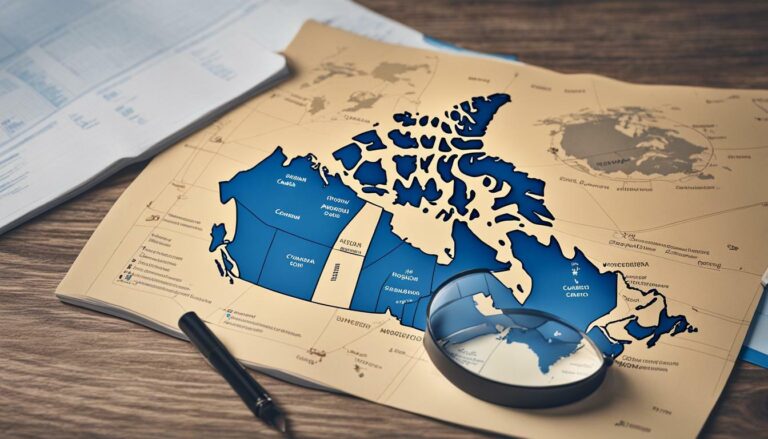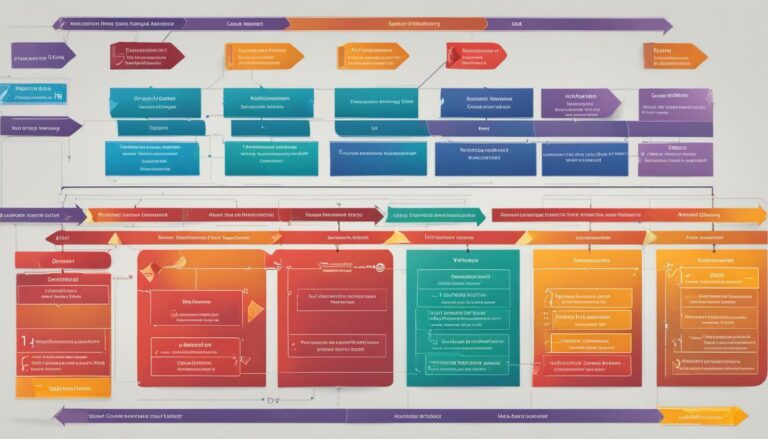Understanding What Tax Documents Are Needed After Becoming a Canada PR
After achieving permanent residency in Canada, it is crucial to familiarize yourself with the necessary tax documents to meet your tax obligations effectively. The Canada Revenue Agency (CRA) determines your residency status based on factors such as residential ties to Canada. If you are considered a permanent resident, factual resident, or deemed resident, you must file income tax in Canada and report worldwide income. It is recommended to review tax treaties between your former country of residence and Canada to determine specific tax obligations.
If you have left Canada and are no longer a resident, you may still have to file a tax return for the year of departure. It is wise to file an income tax return in Canada even if you didn’t earn income, as it allows you to apply for benefits and credits. The deadline to file a 2022 income tax return in Canada is on or before May 1, 2023 (June 15, 2023 for self-employed individuals). You can file your return online through EFILE or NETFILE, or use a paper package. Free certified tax preparation software and tax clinics are available to simplify the filing process.
As a U.S./Canada dual citizen, you have tax obligations in both countries. You must file U.S. taxes even if you live in Canada. There are tools like the Foreign Earned Income Exclusion and Foreign Tax Credit that can help lower your U.S. tax liability. Investments in certain tax-free accounts in Canada may still be subject to U.S. taxes. Canadian retirement plans and pensions may qualify for special treatment under the Canada/U.S. tax treaty. It is important to note that if you were born in the U.S. or have a U.S. parent, you may be considered a dual citizen with U.S. tax obligations. Filing prior year returns can be done through the Streamlined Foreign Offshore Procedures. Additionally, dual citizens with Canadian bank accounts may be required to file the Foreign Bank Account Report (FBAR) and FATCA Form 8938 to comply with U.S. reporting requirements.
Key Takeaways
- Permanent residents (PRs) in Canada must file income tax and report worldwide income to comply with tax obligations.
- Review tax treaties between your former country of residence and Canada to understand specific tax obligations.
- Even if you no longer reside in Canada, you may still need to file a tax return for the year of departure.
- Filing an income tax return in Canada, even without income, allows you to access benefits and credits.
- As a U.S./Canada dual citizen, you have tax obligations in both countries and may need to use specialized tax tools and procedures.
Canada PR Tax Filing Requirements
As a permanent resident (PR) of Canada, you must fulfill certain tax filing requirements to adhere to the Canadian tax system. The Canada Revenue Agency (CRA) determines your residency status based on factors such as residential ties to Canada. If you are considered a permanent resident, factual resident, or deemed resident, you must file income tax in Canada and report worldwide income. This includes income earned both within Canada and abroad.
To ensure compliance, it is essential to gather the necessary tax documents for Canada PR residents. These documents typically include T4 and T5 slips, which report employment income and investment income respectively. You may also need to provide receipts or records for expenses related to deductions or credits you plan to claim.
It is recommended to review any tax treaties between your former country of residence and Canada to determine if there are specific tax obligations or benefits that apply to you. Understanding these treaties can help you navigate potential tax implications and ensure accurate reporting of your income and assets.
| Tax Documents for Canada PR Residents |
|---|
| T4 slips |
| T5 slips |
| Receipts for deductions or credits |
By gathering the necessary tax documents and understanding the specific requirements for Canada PR tax filing, you can fulfill your obligations and ensure compliance with the Canadian tax system. It is important to file your income tax return on time, as the deadline for the 2022 tax year is on or before May 1, 2023 (June 15, 2023 for self-employed individuals).
Worldwide Income Reporting for Canadian PRs
As a Canadian permanent resident (PR), you are required to report your worldwide income to the Canada Revenue Agency (CRA). This means that not only do you need to report income earned in Canada, but also income earned from all sources outside of the country. It is important to understand and comply with this requirement to fulfill your tax obligations as a PR in Canada.
Reporting your worldwide income involves:
- Providing accurate details of your income from all sources, including employment income, self-employment income, rental income, investment income, and more.
- Ensuring that you report income earned in foreign currencies accurately by converting it to Canadian dollars using the prevailing exchange rates.
- Disclosing any foreign assets, including bank accounts, securities, and real estate holdings, as required by the CRA.
Tax Treaties:
Canada has tax treaties with many countries to avoid double taxation. These treaties determine how your international income will be taxed and provide guidance on claiming foreign tax credits. It is essential to review the tax treaty between your former country of residence and Canada to understand your specific tax obligations and ensure compliance with both tax systems.
Consulting a Tax Professional:
Understanding and navigating worldwide income reporting can be complex, especially if you have income from multiple sources or hold assets abroad. Consulting a qualified tax professional can provide you with personalized advice and guidance tailored to your individual situation. They can ensure accurate reporting of your worldwide income and help you take advantage of any available deductions or tax credits.
| Tax Obligations for Canadian PRs | Summary |
|---|---|
| Report worldwide income to the CRA | Accurately disclose all income earned, including from foreign sources |
| Review tax treaties | Understand specific tax obligations based on your country of former residence |
| Consult a tax professional | Get personalized advice and ensure accurate reporting |
Tax Treaties & Specific Obligations for Canada PRs
It is recommended to review tax treaties between your former country of residence and Canada to determine specific tax obligations as a permanent resident (PR) in Canada. The tax treaties serve as legal agreements between countries to prevent double taxation on individuals who have income or assets in both countries.
These tax treaties may outline specific rules and regulations regarding tax residency, the taxation of certain types of income, and the eligibility for tax credits and deductions. By understanding the tax treaties that apply to you, you can ensure that you are fulfilling your tax obligations in both your former country of residence and Canada.
In addition to tax treaties, permanent residents in Canada may have specific tax obligations unique to their status. For example, if you receive income from foreign investments or hold foreign bank accounts, you may be required to report and disclose these assets to the Canada Revenue Agency (CRA). Failure to comply with these obligations can result in penalties and legal consequences.
Therefore, it is essential to consult with a qualified tax professional or seek guidance from the CRA to ensure you are fully aware of your tax obligations and properly reporting your income and assets as a permanent resident (PR) in Canada.
| Tax Treaty Country | Specific Tax Obligations |
|---|---|
| United States | Dual citizens must file U.S. taxes even if living in Canada |
| United Kingdom | Elimination of double taxation on income and capital gains |
| Australia | Taxation of pensions and social security benefits |
| Germany | Treatment of employment income and social security benefits |
- Consult with a tax professional to determine the specific tax treaties that may apply to you.
- Ensure you are aware of any additional tax obligations as a permanent resident in Canada.
- Keep accurate records of your income and assets to comply with reporting requirements.
- Regularly review any changes in tax laws and treaties that may affect your tax obligations.
“It is crucial for permanent residents in Canada to understand their tax obligations, including the impact of tax treaties with their former country of residence. By staying informed and fulfilling all tax obligations, individuals can avoid penalties and ensure compliance with Canadian tax laws and regulations.” – Tax Expert.
Tax Returns for Former Canada PRs
If you have left Canada and are no longer a permanent resident (PR), you may still have to file a tax return for the year of your departure. Even though you’re no longer a resident, the Canada Revenue Agency (CRA) requires you to report any income earned in Canada during the part of the year you were still considered a PR. It is important to understand and fulfill your tax obligations to ensure compliance with Canadian tax laws.
When filing your tax return as a former PR, you will need to report your worldwide income up until the date you left Canada. This includes any employment income, rental income, investment income, or other sources of income earned both inside and outside of Canada. However, you will not be eligible for certain deductions and tax credits that are only available to residents of Canada.
| Documents Required for Tax Return Filing: |
|---|
| 1. T4 slips for employment income earned in Canada |
| 2. Rental income statements (if applicable) |
| 3. Investment income statements (such as T5 and T3 slips) |
| 4. Statements of foreign income and taxes paid (if applicable) |
| 5. Any other relevant income documents |
It is important to keep in mind that the deadline for filing your tax return as a former PR is the same as for residents of Canada. For the 2022 tax year, the deadline to file your return is on or before May 1, 2023. However, if you or your spouse or common-law partner carried on a business in 2022, the deadline is June 15, 2023. To make the process easier, you can file your return online through the CRA’s EFILE or NETFILE systems, or you can use a paper package.
If you need assistance with your tax return as a former PR, there are free certified tax preparation software options available, as well as tax clinics that can provide guidance and support. These resources can help simplify the filing process and ensure that you fulfill your tax obligations according to Canadian tax laws.
Benefits of Filing an Income Tax Return in Canada
It is recommended to file an income tax return in Canada, regardless of whether you earned income, as it enables you to apply for benefits and credits. Filing a tax return allows you to access various government programs and financial assistance that can help improve your financial well-being. Here are some key benefits of filing an income tax return:
- Tax Refunds: By filing a tax return, you may be eligible for a tax refund if you overpaid taxes throughout the year. This can provide you with a welcome financial boost and allow you to use the funds for other important expenses.
- GST/HST Credit: Filing a tax return ensures that you receive the Goods and Services Tax/Harmonized Sales Tax (GST/HST) credit if you are eligible. This credit provides financial assistance to low and modest-income individuals and families to help offset the cost of the GST/HST paid on daily essentials.
- Canada Child Benefit: If you have dependent children, filing a tax return is necessary to receive the Canada Child Benefit (CCB), which provides monthly tax-free payments to families to assist with the cost of raising children. The CCB is based on your family’s income and the number of children you have.
- Tuition and Education Credits: By filing a tax return, you can claim tuition and education credits, which can reduce your tax liability or result in a tax refund. These credits are available to students or their spouses/common-law partners to help offset the cost of post-secondary education.
Filing an income tax return ensures that you are taking advantage of the various benefits and credits available to you as a resident of Canada. It also demonstrates your compliance with the tax laws and helps maintain a good standing with the Canada Revenue Agency (CRA).
| Benefits of Filing an Income Tax Return in Canada |
|---|
| Tax Refunds |
| GST/HST Credit |
| Canada Child Benefit |
| Tuition and Education Credits |
Deadline and Methods for Filing Income Tax Return
The deadline to file a 2022 income tax return in Canada is on or before May 1, 2023 (June 15, 2023 for self-employed individuals), and there are various methods to file your return. To make the process easier and more convenient, the Canada Revenue Agency (CRA) offers online filing options, as well as the traditional paper filing method. Let’s explore the different methods available:
1. EFILE:
EFILE is an electronic filing service that allows authorized tax professionals to submit tax returns on behalf of individuals. If you prefer to have a tax professional handle your return, you can choose this method. Ensure that your tax professional is registered with the CRA to use EFILE.
2. NETFILE:
NETFILE is an online filing service that allows individuals to submit their tax returns directly to the CRA. To use this method, you need to have a certified tax preparation software that supports NETFILE. The software will guide you through the process and ensure that your return meets the CRA’s requirements.
3. Paper Filing:
If you prefer a more traditional approach, you can file your tax return on paper. The CRA provides a tax package that includes all the necessary forms and instructions. You can fill out the forms manually and mail them to the appropriate tax center. Remember to keep copies of your documents for your records.
Regardless of the filing method you choose, it is crucial to gather all the relevant tax documents and supporting documentation before starting the process. This includes forms such as T4 (employment income), T5 (investment income), and any applicable receipts for deductions or credits. Having these documents organized will help ensure an accurate and timely filing.
| Method | Benefits |
|---|---|
| EFILE | – Convenient if you prefer to use a tax professional – Allows for quicker processing and response from the CRA |
| NETFILE | – Fast and secure method to file your return – Immediate confirmation of receipt by the CRA |
| Paper Filing | – Suitable for those who prefer a physical copy of their return – No requirement for specialized software or internet access |
Remember to file your income tax return on time to avoid penalties or interest charges. If you need assistance with your tax filing or have specific questions, you can contact the CRA directly or seek advice from a qualified tax professional.
Tax Obligations for U.S./Canada Dual Citizens
As a U.S./Canada dual citizen, you have tax obligations in both countries and must fulfill these obligations to ensure compliance. Understanding the tax requirements for dual citizens can be complex, as the tax systems of both countries have different rules and regulations.
In the United States, all U.S. citizens, regardless of where they reside, are required to report and pay taxes on their worldwide income. This means that as a dual citizen, you must file a U.S. tax return and report your income from both U.S. and Canadian sources. Even if you live in Canada and pay taxes there, you are still required to file U.S. taxes.
Fortunately, there are provisions in place to prevent double taxation. The U.S.-Canada Tax Treaty allows for certain tax credits and deductions to reduce your overall tax liability. You may be able to take advantage of the Foreign Earned Income Exclusion or the Foreign Tax Credit, which can help lower your U.S. tax obligations.
It is important to note that investments held in certain tax-free accounts in Canada, such as Tax-Free Savings Accounts (TFSAs), may still be subject to U.S. taxes. Additionally, Canadian retirement plans and pensions may qualify for special treatment under the tax treaty between the two countries.
| Key Points |
|---|
| • As a dual citizen, you must file taxes in both the U.S. and Canada |
| • You are required to report your worldwide income to the U.S. Internal Revenue Service (IRS) |
| • The U.S.-Canada Tax Treaty can help reduce your tax liability |
| • Certain Canadian investments and retirement plans may still be subject to U.S. taxes |
If you were born in the U.S. or have a U.S. parent, you may automatically be considered a U.S. citizen and therefore have U.S. tax obligations. Failing to comply with these obligations can result in penalties and legal consequences.
To ensure compliance with both the U.S. and Canadian tax systems, it is recommended that you consult with a qualified tax professional who specializes in cross-border taxation. They can help you navigate the complexities of dual citizenship and ensure that you meet all of your tax obligations in both countries.
Special Considerations for U.S. Citizens in Canada
U.S. citizens residing in Canada may have specific considerations when it comes to taxes, including potential benefits, credits, and tax implications. As a U.S./Canada dual citizen, it is important to be aware of your tax obligations in both countries to ensure compliance with their respective tax systems.
When filing your taxes, it is crucial to understand that you must file U.S. tax returns even if you live in Canada. The United States taxes its citizens on their worldwide income, regardless of their place of residence. However, there are tools and provisions available to help lower your U.S. tax liability, such as the Foreign Earned Income Exclusion and the Foreign Tax Credit.
It is also important to note that investments held in certain tax-free accounts in Canada may still be subject to U.S. taxes. Additionally, Canadian retirement plans and pensions may qualify for special treatment under the Canada/U.S. tax treaty. Understanding these provisions can help optimize your tax situation and ensure compliance with both countries’ tax laws.
| Important Considerations for U.S. Citizens in Canada | |
|---|---|
| Filing U.S. Taxes | Even if you live in Canada, you must file U.S. tax returns and report your worldwide income. |
| Tax Planning Tools | Explore options such as the Foreign Earned Income Exclusion and the Foreign Tax Credit to lower your U.S. tax liability. |
| Investments and Retirement Plans | Understand the tax implications of investments held in tax-free accounts in Canada and the treatment of Canadian retirement plans under the Canada/U.S. tax treaty. |
As a U.S. citizen residing in Canada, it is important to be aware of your tax obligations and potential benefits. It is recommended to consult with a tax professional who specializes in cross-border taxation to ensure compliance with both U.S. and Canadian tax laws.
Conclusion
Understanding and fulfilling tax obligations is crucial for individuals who become permanent residents (PRs) in Canada, as well as for U.S./Canada dual citizens, to ensure compliance and avoid any potential penalties or issues with the tax authorities.
After becoming a permanent resident of Canada, it is important to understand the tax documents needed to fulfill your tax obligations. The Canada Revenue Agency (CRA) determines your residency status based on factors such as residential ties to Canada. If you are considered a permanent resident, factual resident, or deemed resident, you must file income tax in Canada and report worldwide income. You should also claim applicable deductions and tax credits.
If you have left Canada and are no longer a resident, you may still have to file a tax return for the year of departure. It is wise to file an income tax return in Canada even if you didn’t earn income, as it allows you to apply for benefits and credits. The deadline to file a 2022 income tax return in Canada is on or before May 1, 2023 (June 15, 2023 for self-employed individuals). You can file your return online through EFILE or NETFILE, or use a paper package. Free certified tax preparation software and tax clinics are available to simplify the filing process.
As a U.S./Canada dual citizen, you have tax obligations in both countries. You must file U.S. taxes even if you live in Canada. There are tools like the Foreign Earned Income Exclusion and Foreign Tax Credit that can help lower your U.S. tax liability. Investments in certain tax-free accounts in Canada may still be subject to U.S. taxes. Canadian retirement plans and pensions may qualify for special treatment under the Canada/U.S. tax treaty. It is important to note that if you were born in the U.S. or have a U.S. parent, you may be considered a dual citizen with U.S. tax obligations. Filing prior year returns can be done through the Streamlined Foreign Offshore Procedures. Additionally, dual citizens with Canadian bank accounts may be required to file the Foreign Bank Account Report (FBAR) and FATCA Form 8938 to comply with U.S. reporting requirements.
FAQ
Q: What tax documents are needed after becoming a Canada PR?
A: After becoming a permanent resident of Canada, you will need to gather tax documents such as T4 slips, T5 slips, and any other income-related documents. Additionally, you may need to provide documentation for deductions, tax credits, and any other relevant financial information.
Q: What are the tax filing requirements for Canada PR holders?
A: As a permanent resident of Canada, you are required to file an income tax return with the Canada Revenue Agency (CRA) and report your worldwide income. This includes reporting income earned from both Canadian and foreign sources.
Q: Do Canadian PRs need to report worldwide income?
A: Yes, Canadian permanent residents (PRs) are required to report their worldwide income to the Canada Revenue Agency (CRA) when filing their income tax return. This includes income earned within and outside of Canada.
Q: Are there any specific tax obligations for Canada PRs?
A: There may be specific tax obligations for Canadian permanent residents (PRs) depending on their individual circumstances. It is recommended to review tax treaties between your former country of residence and Canada to determine any specific tax obligations that may apply to you.
Q: Do former Canada PRs still need to file a tax return?
A: If you have left Canada and are no longer a permanent resident (PR), you may still have to file a tax return for the year of departure. It is wise to file an income tax return in Canada even if you didn’t earn income, as it allows you to apply for benefits and credits.
Q: When is the deadline to file a 2022 income tax return in Canada?
A: The deadline to file a 2022 income tax return in Canada is on or before May 1, 2023. However, self-employed individuals have until June 15, 2023, to file their tax return.
Q: What are the methods available for filing an income tax return in Canada?
A: You can file your income tax return in Canada through EFILE or NETFILE, which are online filing options provided by the Canada Revenue Agency (CRA). Alternatively, you can use a paper package and mail in your tax return.
Q: Do U.S./Canada dual citizens have tax obligations in both countries?
A: Yes, as a U.S./Canada dual citizen, you have tax obligations in both countries. You must file U.S. taxes even if you live in Canada. It is important to be aware of the tax treaties and tools available to help manage your tax liability.
Q: Are there any special considerations for U.S. citizens in Canada?
A: U.S. citizens in Canada may have special considerations when it comes to their taxes. Investments in certain tax-free accounts in Canada may still be subject to U.S. taxes. It is important to consult tax professionals and review the Canada/U.S. tax treaty for guidance.
Source Links
- https://www.hrblock.com/expat-tax-preparation/resource-center/country/canada/u-s-canada-dual-citizenship-taxes-5-things-you-should-know/
- https://www.prepareforcanada.com/after-you-arrive/manage-your-finances/do-newcomers-need-to-file-an-income-tax-return/
- https://turbotax.intuit.ca/tips/how-does-residency-status-impact-your-tax-return-494







